Fleurs du Mal Magazine


Or see the index

The Sorrows of Young Werther (47) by J.W. von Goethe OCTOBER 19. Alas! the void the fearful void, which I feel in my bosom! Sometimes I think, if I could only once but once, press her to my heart, this dreadful void would be filled.OCTOBER 26. Yes, I feel certain, Wilhelm, and every day I become more certain, that the existence of any being whatever is of very little consequence. A friend of Charlotte's called to see her just now. I withdrew into a neighbouring apartment, and took up a book; but, finding I could not read, I sat down to write. I heard them converse in an undertone: they spoke upon indifferent topics, and retailed the news of the town. One was going to be married; another was ill, very ill, she had a dry cough, her face was growing thinner daily, and she had occasional fits. "N--is very unwell too," said Charlotte. "His limbs begin to swell already," answered the other; and my lively imagination carried me at once to the beds of the infirm. There I see them struggling against death, with all the agonies of pain and horror; and these women, Wilhelm, talk of all this with as much indifference as one would mention the death of a stranger. And when I look around the apartment where I now am--when I see Charlotte's apparel lying before me, and Albert's writings, and all those articles of furniture which are so familiar to me, even to the very inkstand which I am using,--when I think what I am to this family--everything. My friends esteem me; I often contribute to their happiness, and my heart seems as if it could not beat without them; and yet---if I were to die, if I were to be summoned from the midst of this circle, would they feel--or how long would they feel the void which my loss would make in their existence? How long! Yes, such is the frailty of man, that even there, where he has the greatest consciousness of his own being, where he makes the strongest and most forcible impression, even in the memory, in the heart, of his beloved, there also he must perish,--vanish,--and that quickly. The Sorrows of Young Werther (Die Leiden des jungen Werther) by J.W. von Goethe. Translated by R.D. Boylan. To be continued fleursdumal.nl magazine
More in: -Die Leiden des jungen Werther, Goethe, Johann Wolfgang von

Renée Vivien
(1877-1909)
Chanson
The flight of the fluttering bat
Is tortuous, aguished, bizarre.
Then, beating her bruised wings thereat,
She turns, and looks back from afar.
Have you never felt, just one time,
How, drunken with painful defeat,
My soul, in a mad flight sublime,
Soared to your lips, distant but sweet?
Renée Vivien poetry
fleursdumal.nl magazine
More in: Archive U-V, Renée Vivien, Vivien, Renée
.jpg)
Daniil Kharms
(1905-1942)
Blue Notebook No. 10 or The Red-Haired Man
Once, there was a red-haired man who had no eyes and no ears. Because he had no hair either, he was called “red-haired man” but only theoretically. He couldn’t speak since he had no mouth. He didn’t have a nose either. He also had no legs and no arms. He had no stomach, no back, no spine, and he also had no interior whatsoever. He had nothing at all! Therefore, it is not clear who we are actually talking about. In fact, we would rather not talk about him any more.
ГОЛУБАЯ ТЕТРАДЬ No. 10
Жил один рыжий человек, у которого не было глаз и ушей. У него не было и волос, так что рыжим его называли условно. Говорить он не мог, так как у него не было рта. Носа тоже у него не было. У него не было даже рук и ног. И живота у него не было, и спины у него не было, и хребта у него не было, и никаких внутренностей у него не было. Ничего не было! Так что не понятно, о ком идет речь. Уж лучше мы о нем не будем больше говорить.
Daniil Kharms (Charms) poetry
fleursdumal.nl magazine
More in: Archive C-D, Archive K-L, Kharms (Charms), Daniil
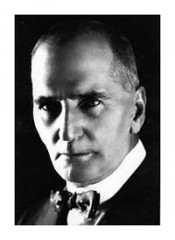
Eugène Marais
(1871–1936)
Die Smid
Blaas hoog die vlam,
geen floue trek of tam!
Want alles moet verteer –
in gloed verander, eer,
met skitter, skoon en rein,
die wit lig suiwer skyn.
Blaas hoog die vlam!
Die hamer klaar,
die aambeeld daar;
die kleinste ding,
al hoe gering,
verdien die werkmansorg.
Want elk’ gereedskap, swak of sterk,
die maak sy indruk op die werk –
Blaas hoog die vlam!
O, hoog en vry en vroom,
wees beeld van ons gemoed die stroom
van vonk en vlam en vuur
wat oprys oor die muur –
Blaas hoog die vlam!
O, sterk van spier, van harte rein!
Al is die yster groot of klein,
hoe sterk of knap die hand mag wees,
die werk se bron is in die gees.
Geen kraakloos’ tang of suiwer wiel
kom uit ‘n vuile hart of siel –
Blaas hoog die vlam!
Blaas hoog die vlam!
Deur stof- en steenkooldam;
die nawe wat ons boor,
die bande wat ons kort,
die gaan miskien die berge oor,
tot in die verte vort;
– die trekker met sy wa! –
ons werk moet alle swaarte dra.
Deur Dorsland en woestyn
reg in die Noordelyn
die weg van Cham se leër,
verby Ngami-meer;
al met die sonpad mee
tot waar hy opkom uit die see,
– die Trekker met sy wa! –
die verte hou vir hom geen vrees,
hy weet die werksman is getrou gewees.
Blaas hoog die vlam!
Eugène Marais poetry
fleursdumal.nl magazine
More in: Archive M-N, Eugène Marais, Marais, Eugène
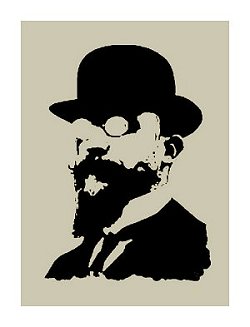
Erik Satie
(1866 – 1925)
Le Flirt
Il se disent de jolies choses, des choses modernes.
« Comment allez-vous ? »
« Ne suis-je pas aimable ? »
« Laissez-moi ? »
« Vous avez de gros yeux. »
« Je voudrais être dans la lune. »
Il soupire.
Il hoche la tête.
29 mars 1914
Erik Satie Le Flirt
fleursdumal.nl magazine
More in: Archive S-T, MUSIC, Satie, Erik
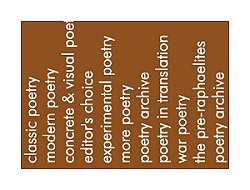
Gotthold Ephraim Lessing
(1729-1781)
Das Mädchen
Zum Mädchen wünscht’ ich mir – und wollt’ es, ha! recht lieben –
Ein junges, nettes, tolles Ding,
Leicht zu erfreun, schwer zu betrüben,
Am Wuchse schlank, im Gange flink,
Von Aug’ ein Falk,
Von Mien’ ein Schalk;
Das fleißig, fleißig liest:
Weil alles, was es liest,
Sein einzig Buch – der Spiegel ist;
Das immer gaukelt, immer spricht,
Und spricht und spricht von tausend Sachen,
Versteht es gleich das Zehnte nicht
Von allen diesen tausend Sachen:
Genug, es spricht mit Lachen,
Und kann sehr reizend lachen.
Solch Mädchen wünscht’ ich mir! – Du, Freund, magst deine Zeit
Nur immerhin bei schöner Sittsamkeit,
Nicht ohne seraphin’sche Tränen,
Bei Tugend und Verstand vergähnen.
Solch einen Engel
Ohn’ alle Mängel
Zum Mädchen haben:
Das hieß’ ein Mädchen haben? –
Heißt eingesegnet sein, und Weib und Hausstand haben.
Gotthold Ephraim Lessing poetry
fleursdumal.nl magazine
More in: Archive K-L, CLASSIC POETRY
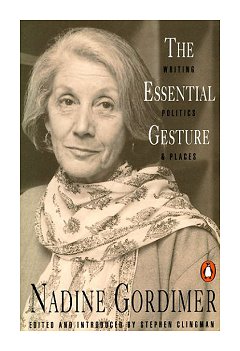 In Memoriam South African author
In Memoriam South African author
Nadine Gordimer
Nadine Gordimer (20 Nov.1923 -13 July 2014) the South African Nobel Prize-winning author, has died in Johannesburg aged 90.
The writer was one of the literary world’s most strong voices against apartheid. She was a leading member of the African National Congress (ANC) and fought for the release of Nelson Mandela.
In 1974 Gordimer won the Booker Prize and she was awarded the Nobel Prize for Literature in 1991.
Bibliography Nadine Gordimer
2007 Beethoven Was One-Sixteenth Black, Bloomsbury
2005 Get A Life, Bloomsbury
2004 Telling Tales, editor, Bloomsbury
2003 Loot, Bloomsbury
2001 The Pickup, Bloomsbury
1999 Living in Hope and History: Notes On Our Century, Bloomsbury
1998 The House Gun, Bloomsbury
1996 Harald, Claudia and Their Son Duncan, Bloomsbury Birthday Quid, Bloomsbury
1994 Writing and Being, Harvard University Press
1994 None to Accompany Me, Bloomsbury
1992 Why Haven’t You Written?: Selected Stories 1950-1972, Penguin
1991 Three in a Bed: Fiction, Morals and Politics, Bennington College (USA)
1991 Jump and Other Stories, Bloomsbury
1991 Crimes of Conscience: Selected Short Stories, Heinemann
1990 My Son’s Story, Bloomsbury
1988 The Essential Gesture: Writing, Politics and Places, Cape
1987 A Sport of Nature, Cape
1986 Reflections of South Africa: Short Stories, Systime (USA)
1986 Lifetimes: Under Apartheid, with David Goldblatt, Cape
1986 A Correspondence Course and Other Stories, Eurographica (Iceland)
1985 The Tanner Lectures on Human Values, Cambridge University Press
1984 Something Out There, Cape
1981 July’s People, Cape
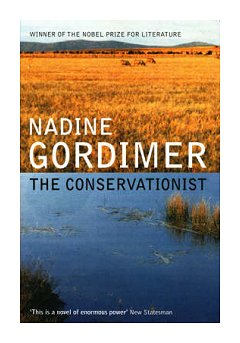
1980 What Happened to Burger’s Daughter Or How South African Censorship Works, Taurus (South Africa)
1980 Town and Country Lovers, Collectors Edition, Sylvester and Orphanos (USA)
1980 A Soldier’s Embrace, Cape
1979 Burger’s Daughter, Cape
1975 Some Monday for Sure, Cape
1975 Selected Stories, reissued as “No Place Like: Selected Stories”, Penguin, 1975, Cape
1974 The Conservationist, Cape
1973 The Black Interpreters: Notes on African Writing, Spro-Cas/Ravan (South Africa)
1973 On the Mines, with David Goldblatt, C. Struik (South Africa)
1972 Livingstone’s Companions: Stories, Cape
1972 African Literature: The Lectures Given on This Theme at the University of Cape Town’s Public Summer School, February 1972, University of Cape Town (South Africa)
1971 A Guest of Honour, Cape
1970 Penguin Modern Stories, contributor, Penguin
1967 South African Writing Today, co-editor with L. Abrahams, Penguin
1966 The Late Bourgeois World, Gollancz
1965 Not for Publication, Gollancz
1963 Occasion for Loving, Gollancz
1960 Friday’s Footprint, Gollancz
1958 A World of Strangers, Gollancz
1956 Six Feet ofthe Country: Short Stories, Gollancz
1953 The Soft Voice of the Serpent and Other Stories, Gollancz
1953 The Lying Days, Gollancz
1949 Face to Face: Short Stories, Silver Leaf Books (South Africa)
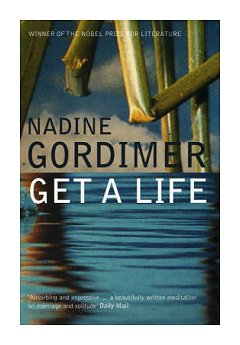
fleursdumal.nl magazine
More in: # Archive S.A. literature, Apartheid, Archive G-H, In Memoriam, REPRESSION OF WRITERS, JOURNALISTS & ARTISTS

The Sorrows of Young Werther (46) by J.W. von Goethe
OCTOBER 10.
Only to gaze upon her dark eyes is to me a source of happiness! And
what grieves me, is, that Albert does not seem so happy as he–hoped to
be–as I should have been–if–I am no friend to these pauses, but here
I cannot express it otherwise; and probably I am explicit enough.
OCTOBER 12.
Ossian has superseded Homer in my heart. To what a world does the
illustrious bard carry me! To wander over pathless wilds, surrounded by
impetuous whirlwinds, where, by the feeble light of the moon, we see the
spirits of our ancestors; to hear from the mountain-tops, mid the roar
of torrents, their plaintive sounds issuing from deep caverns, and the
sorrowful lamentations of a maiden who sighs and expires on the mossy
tomb of the warrior by whom she was adored. I meet this bard with silver
hair; he wanders in the valley; he seeks the footsteps of his fathers,
and, alas! he finds only their tombs. Then, contemplating the pale moon,
as she sinks beneath the waves of the rolling sea, the memory of
bygone days strikes the mind of the hero, days when approaching danger
invigorated the brave, and the moon shone upon his bark laden with
spoils, and returning in triumph. When I read in his countenance deep
sorrow, when I see his dying glory sink exhausted into the grave, as he
inhales new and heart-thrilling delight from his approaching union with
his beloved, and he casts a look on the cold earth and the tall grass
which is so soon to cover him, and then exclaims, “The traveller will
come,–he will come who has seen my beauty, and he will ask, ‘Where is
the bard, where is the illustrious son of Fingal?’ He will walk over my
tomb, and will seek me in vain!” Then, O my friend, I could instantly,
like a true and noble knight, draw my sword, and deliver my prince from
the long and painful languor of a living death, and dismiss my own soul
to follow the demigod whom my hand had set free!
The Sorrows of Young Werther (Die Leiden des jungen Werther) by J.W. von Goethe. Translated by R.D. Boylan.
To be continued
fleursdumal.nl magazine

More in: -Die Leiden des jungen Werther, Goethe, Johann Wolfgang von
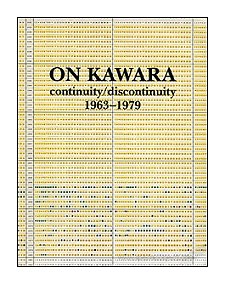
Japanese Conceptual Artist
On Kawara
dies At 81
On Kawara (1933–2014) was a Japanese conceptual artist who lived in New York City since 1965. On Kawara has shown in many solo and group exhibitions.
For over five decades, On Kawara made paintings, drawings and books examining chronological time as a measure of human existence. He started making his signature date paintings (the Today series) on January 4, 1966 in New York City and he made them, all over the world, until July 10 of this year. His conceptual art is to be seen in most of the important collections in the world.
On Kawara died in New York on July 10, 2014 at the age of 81.
fleursdumal.nl magazine
More in: #Archive Concrete & Visual Poetry, Exhibition Archive, FLUXUS LEGACY, In Memoriam, MUSEUM OF LOST CONCEPTS - invisible poetry, conceptual writing, spurensicherung, Visual & Concrete Poetry
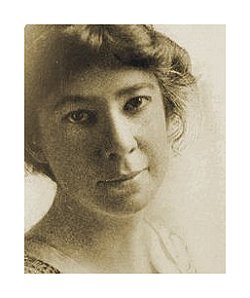
Sara Teasdale
(1884 – 1933)
Alone
I am alone, in spite of love,
In spite of all I take and give–
In spite of all your tenderness,
Sometimes I am not glad to live.
I am alone, as though I stood
On the highest peak of the tired gray world,
About me only swirling snow,
Above me, endless space unfurled;
With earth hidden and heaven hidden,
And only my own spirit’s pride
To keep me from the peace of those
Who are not lonely, having died.
Sara Teasdale poetry
fleursdumal.nl magazine
More in: Archive S-T, Teasdale, Sara
 Southbank Centre London: Poetry International & Festival of Love
Southbank Centre London: Poetry International & Festival of Love
Poetry International London
Thursday 17 July 2014 – Monday 21 July 2014
Poetry International is a bold and inspiring festival of poetry, film and spoken word as part of our summer Festival of Love. For, after all, ‘at the touch of love everyone becomes a poet’ (Plato).
Over a week there are readings, music, poetry films, translations, new commissions, free events and innovative spoken-word performances throughout Southbank Centre – from the Purcell Room at Queen Elizabeth Hall, to the renowned Saison Poetry Library at Royal Festival Hall and the gardens, bars and the public space that surrounds our venues.
With poets from all over the world including Robert Hass, Carolyn Forché, Don Paterson, August Kleinzahler, Durs Grünbein,Ana Blandiana, Caroline Bergvall, Mohamed El Deeb, Nikola Madzirov,Serhiy Zhadan, Bejan Matur.
Poetry International was founded by Ted Hughes in 1967 and takes place every other year.

Festival of Love
Saturday 28 June 2014 – Sunday 31 August 2014
Over two months, Southbank Centre brings together hundreds of artists, communities and partners to create its Festival of Love. Our festival, which celebrates the Same Sex Couple Act, features an exciting programme of free events, differently-themed weekends, performances, poetry, talks and pop-ups. Our Thames-side site is also being transformed by several large-scale indoor and outdoor installations and artworks.
The Seven Kinds of Love: Festival of Love explores and celebrates the complexity of human relationships in all their forms. All of us hold feelings for others, but these feelings differ according to the people and the circumstance. In the English language there is only one word to describe all of them: LOVE.
It wasn’t always so. The Ancient Greeks had around 30 words to describe Love in all its shades and complexities. At Southbank Centre’s Festival of Love, we have chosen seven of the most powerful of these words to guide us towards a greater understanding of the emotion which makes the world go round
Southbank Centre is positioned in the heart of London’s thriving South Bank and welcomes visitors 364 days a year. Relax with a glass of wine on Festival Terrace, wander through the Royal Festival Hall foyers, take part in one of hundreds of free events, enjoy a meal from an array of cafes and restaurants, browse the shops and markets or visit one of Southbank Centre’s iconic venues – Royal Festival Hall, Queen Elizabeth Hall, the Purcell Room, the Hayward Gallery and the Saison Poetry Library.
fleursdumal.nl magazine
More in: #More Poetry Archives, Art & Literature News, Poetry International, THEATRE

Voltaire
(1694-1778)
A Mademoiselle de Guise
Vous possédez fort inutilement
Esprit, beauté, grâce, vertu, franchise ;
Qu’y manque-t-il ? quelqu’un qui vous le dise
Et quelque ami dont on en dise autant.
Voltaire poetry
fleursdumal.nl magazine
More in: Archive U-V, Voltaire
Thank you for reading Fleurs du Mal - magazine for art & literature